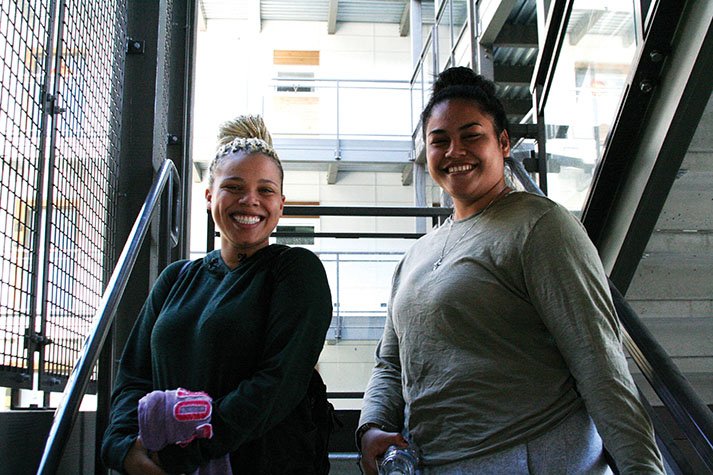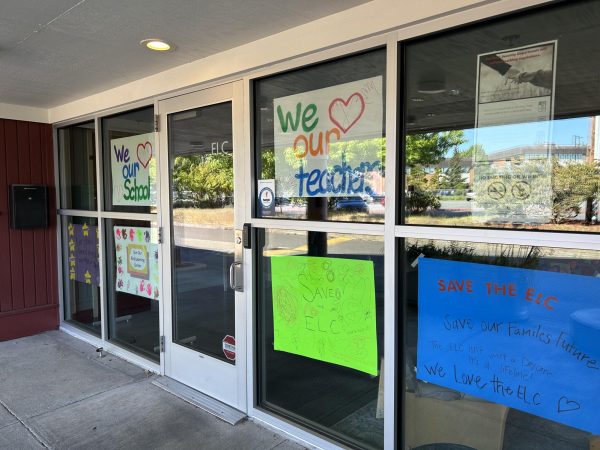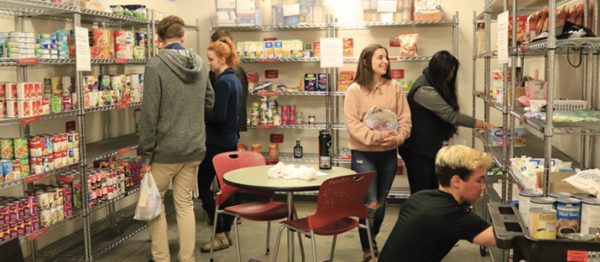Adulting: Making Sense of Moving Out
Friends and dorm residents, Farryn McClenton and Judy Collins, stop and chat on the stairs of Cedar Hall. “She was the first person I talked to,” says Collins.
Independence. It’s a driving force behind the culture of adulting. Historically, nothing has signified independence more than moving out. While this used to be a major measure of adulthood, current costs of housing mean more young adults are living at home longer.

Cedar Hall opened in 2017. The building has studio, 2-, 3- and 4-bedroom apartments with single-occupant bedrooms, a shared kitchen and living space.
According to the Bureau of Labor Statistics, by the age of 27, 90 percent of young adults have reached the goal of moving out on their own.
The average age of an EvCC student is 28, according to the college’s website. Chances are, most students have at least thought about moving out at some point.
Student housing on campus
Currently, there are two housing options on the EvCC campus: apartments at Cedar Hall or rooms within Mountain View Hall. Cedar Hall has studio, 2-, 3- and 4-bedroom apartments with single-occupant bedrooms, a shared kitchen and living space. They come furnished with beds, desks, sofas and tables. Mountain View Hall offers furnished single-rooms with community kitchens on each floor.

Hyuhwa Kang, an international student at EvCC, lives in Mountain View Hall.
International student and current Mountain View Hall resident, Hyuhwa Kang, previously lived in Cedar Hall. She says she likes both residences. She says the perks of living with roommates in Cedar Hall meant she didn’t feel as homesick, while Mountain View Hall provides more independent space. She adds, “It feels more free.”
Judy Collins is a first-quarter EvCC student and Cedar Hall resident. She lists benefits of on-campus living, “You don’t get locked down by your parents.” She continues, “The view is amazing, you don’t waste time parking – and there’s a gym.”
Here, rent is all-inclusive. You don’t need to worry about separate utility bills for electricity, water/sewer/garbage, internet or cable.
There’s also no need to panic if your roommate moves out. Mike Bowers, Director of Housing says, “You’re paying for your bed. You don’t need to worry about making up the cost difference or finding a new roommate…You just have to pay your part and we take it from there.”
The initial cost and requirements for dorm living are fairly straight-forward. There is a $150 application fee which covers administrative costs and a background check. You must be a student at either Everett University Center’s WSU or WWU programs, or at EvCC. Residents must also pass the background check.
Paying for student housing is done per-quarter. Fall is considered 4 months, where Winter and Spring are 3 and Summer is 2. Housing costs vary by bedroom size and building, though not by floor or view.
The cost of campus housing can be covered by financial aid for those who qualify. Bowers says the housing team has worked on streamlining the process, applying the funds directly to campus housing rather than students having to deal with reimbursement checks. Bowers says the goal is that “[students] don’t have to figure it out – it’s just paid for you.”
Bowers encourages potential renters to call or email student housing or drop by the front desk at either dorm for more information.
Off-campus housing
EvCC alumni, Kandis Jones, is the Community Manager of BluWater Apartments in the Silver Lake neighborhood in Everett.
When touring a rental property, Jones says, “Ask everything you can and go back and re-ask.” She explains there is so much to consider – rent, utilities, quiet hours, parking and pet rules.
Jones advises: know your roommates and choose them wisely. All roommates on the lease (rental contract) are responsible for following the rules of the lease and for monies due. She says, “One bad seed can mess up everything for everybody.”
For example, if one of three roommates doesn’t pay their share of the rent, it’s not a penalty against just that person, it is a penalty toward everyone on the lease. Even if it was your roommate in the wrong, not you, it will affect your credibility exactly the same. Jones also points out that residents are responsible for their guests and anything their guests do.
When you apply to future rental places, most will run a check on your history and look for records of late payments, evictions or lease violations.
Reading and understanding the terms of your lease is essential, says Jones. Your lease specifies details about your rights and responsibilities. Jones says, “If you read your lease and have questions, stop and ask them. It’s very important.”
Jones encourages residents to get to know the office staff wherever they end up renting, adding, “We’re here to help [residents.] We’re here every day, living this. Just ask.”
Housing Crisis
For those facing a housing crisis, you can call 2-1-1 and be connected with a local specialist who can help. 2-1-1 is a national non-profit organization largely funded by United Way. It offers to connect people with free assistance with anything from housing to bills to medical expenses.
You can visit Washington state’s 2-1-1 website at www.win211.org
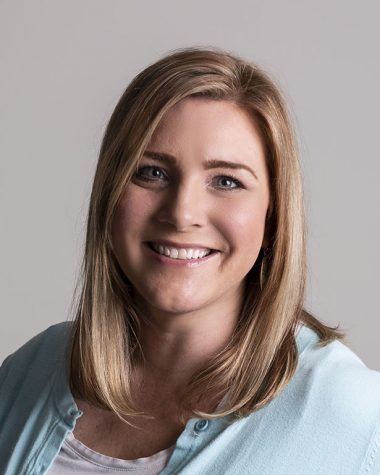
What is an issue or topic you are passionate about?
I passionately believe that every. person. matters.
What’s on your bucket list?
Still...
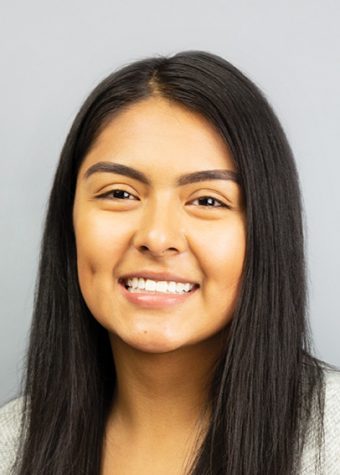
What interests you about journalism?
What interest me about journalism is that there is always something new meaning there is never a boring moment,...

